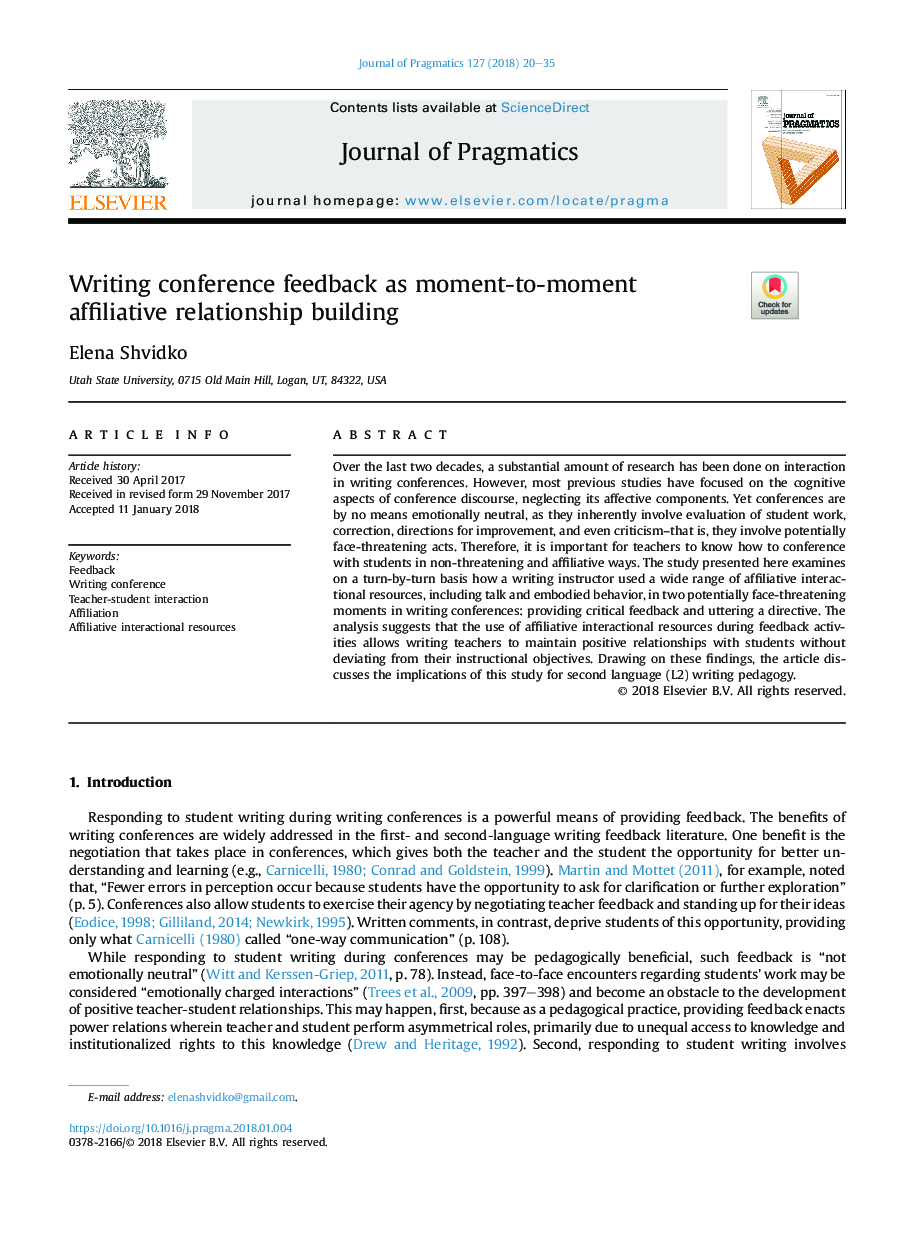| Article ID | Journal | Published Year | Pages | File Type |
|---|---|---|---|---|
| 7297447 | Journal of Pragmatics | 2018 | 16 Pages |
Abstract
Over the last two decades, a substantial amount of research has been done on interaction in writing conferences. However, most previous studies have focused on the cognitive aspects of conference discourse, neglecting its affective components. Yet conferences are by no means emotionally neutral, as they inherently involve evaluation of student work, correction, directions for improvement, and even criticism--that is, they involve potentially face-threatening acts. Therefore, it is important for teachers to know how to conference with students in non-threatening and affiliative ways. The study presented here examines on a turn-by-turn basis how a writing instructor used a wide range of affiliative interactional resources, including talk and embodied behavior, in two potentially face-threatening moments in writing conferences: providing critical feedback and uttering a directive. The analysis suggests that the use of affiliative interactional resources during feedback activities allows writing teachers to maintain positive relationships with students without deviating from their instructional objectives. Drawing on these findings, the article discusses the implications of this study for second language (L2) writing pedagogy.
Related Topics
Social Sciences and Humanities
Arts and Humanities
Language and Linguistics
Authors
Elena Shvidko,
